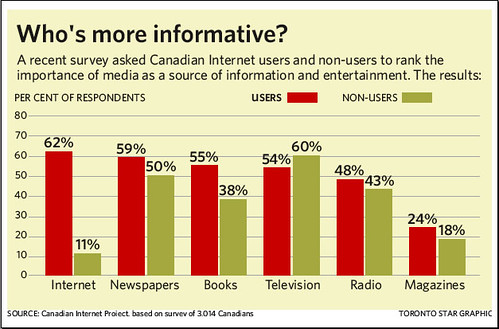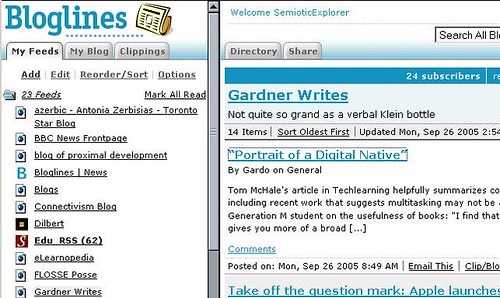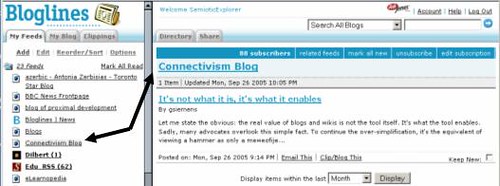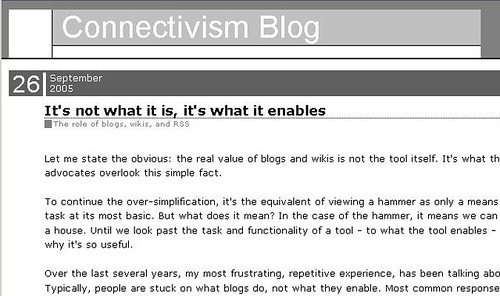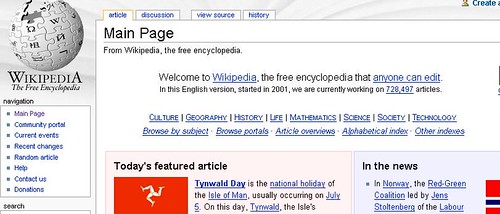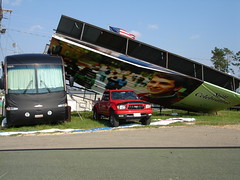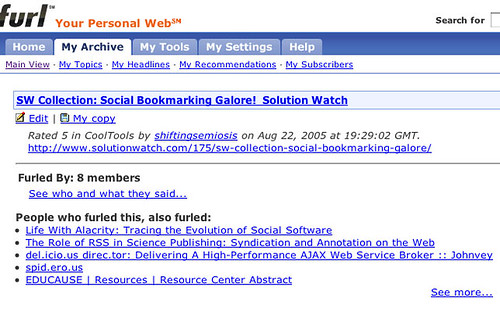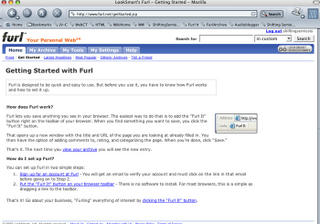I saw
Flickr's icon shown in the tv news reports after the London transit bombings.
Flickr is a photo sharing site where I have an account.
I'm not so sure that a picture can always replace 1000 words, but I
am sure that we humans respond strongly to images. Flickr is a
photo sharing site which I have an account on where I can store and publish images. There are other photo sharing sites, but
Flickr is the best known one currently.
I use it for two reasons
- to store images online so they are accessibe whatever computer I'm using;
- to make posting images easy. (See below)

This is my
avatar or personal icon. I used
Flickr to add it, and I can use Flickr to add images to any Website by simply copying & pasting the HTML code that Flickr produces. I don't have to know HTML code; I just have to know how to copy and how to (and sometimes where to) paste.
Adding pictures to Websites is important not just because it adds visual interest, but mainly because I use a lot of
screenshots in my teaching. If you look at the post below, you will see a screenshot of a page in my Furl archive.
Here is a screenshot of the Flickr page with the HTML I copied to add my avatar image, above, to this post.
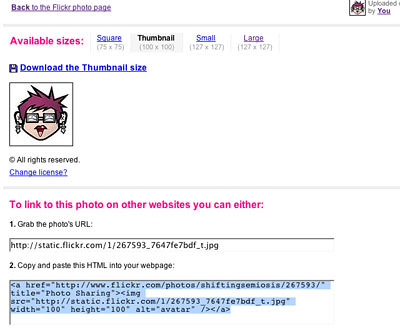
Notice, near the top, that I set it thumbnail size; the screenshot above is set to medium. Near the bottom, you can see, still highlighted, the HTML I copied & pasted into this post.
I change my screenshots into
jpegs before I upload them. In
Windows, I use a very easy, free utility called
Paint, which is found under
Start, under
Programs, then
Accessories. On the Mac, I use Photoshop, which I don't know much about, but if you open your screenshot in it, you can use "Save as" to change it to a jpeg.
Sometimes I insert a screenshot into a Word document so I can add arrows or words. See the screenshot below, with the grab handles showing.
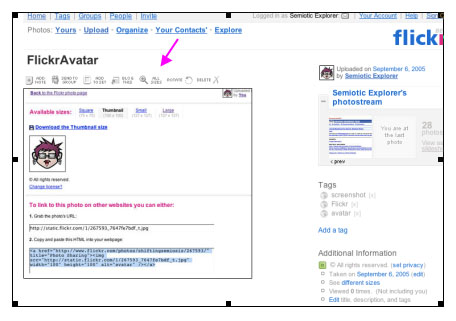
I wanted to use an arrow - pink and near the top - so I could point out that I use
"All Sizes" rather than "Blog this" so I can control the size of the image.
There are many other aspects to
Flickr which you can explore yourself. Its
social aspect is similar to furl's. You can see the images other people have saved - if they made them public. You can keep your images private, or designate who will see them. Tomorrow I plan on uploading to Flickr some old photos my Mom and Dad let me scan, so just my maternal cousins can see them. I will
tag them using the family name.
To return to the beginning,
Flickr appeared in the tv news after the London transit bombings because people who were involved in them, and had cameras of any sort, could upload their photos to Flickr. I expect they tagged them with words suggested by the police and/or the police looked for likely tags. Thus, in a very short time, the police had a flood of photos to help them sort out this crime. Beyond the sharing of photos, Flickr, as part of the
social web, allowed citizens to provide vital information to the authorities. This is a radically new way to witness!
tagsflickrOnline Social Images

